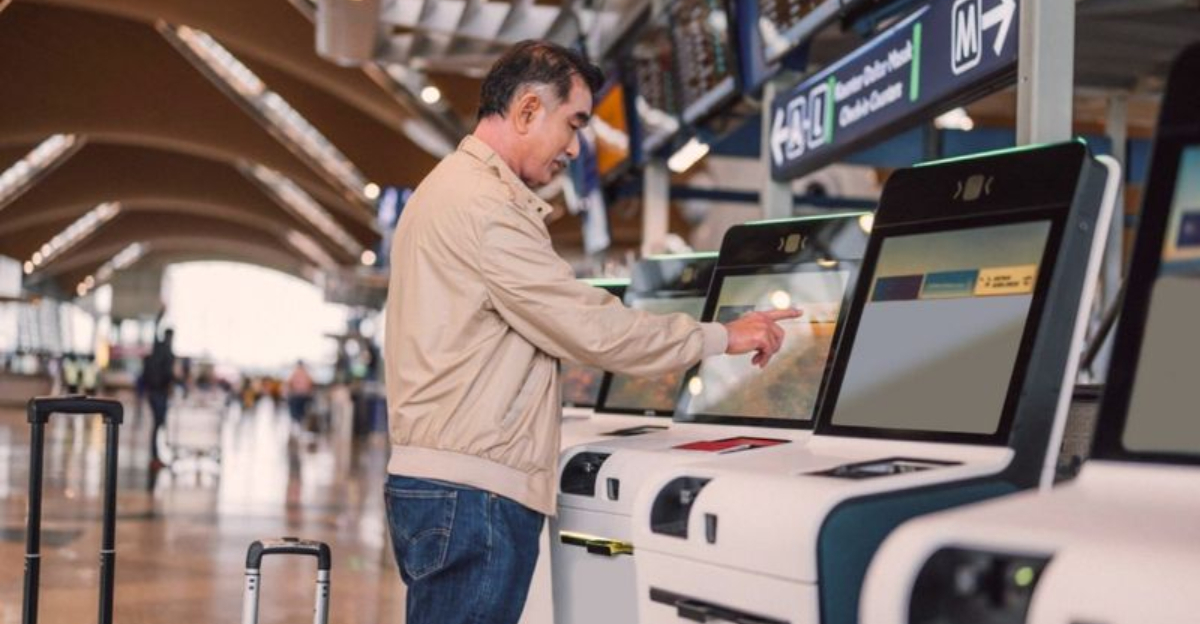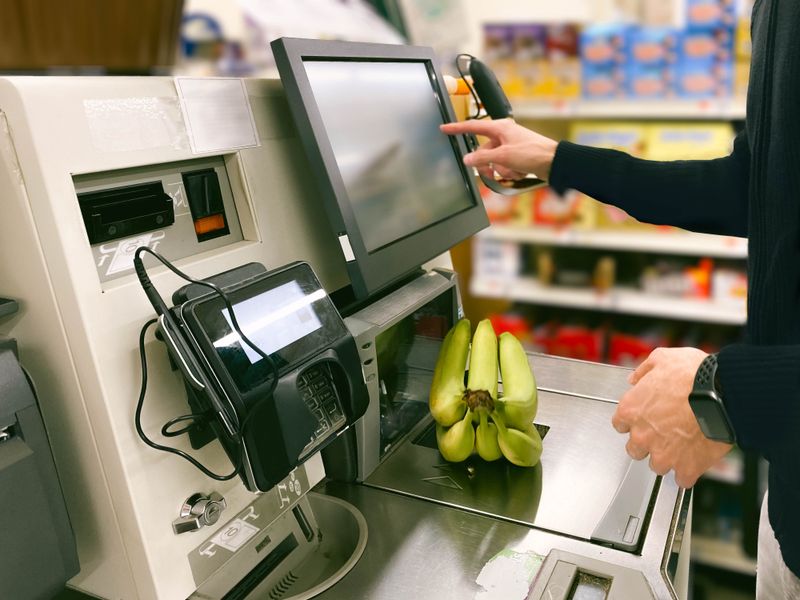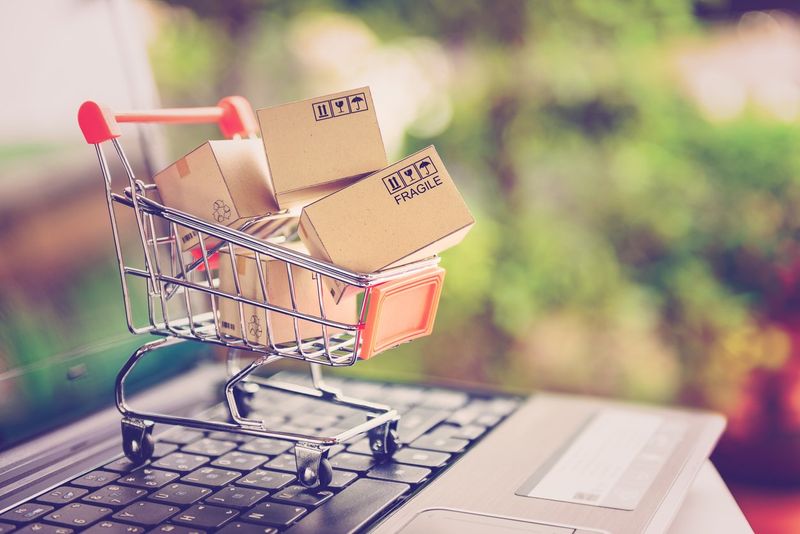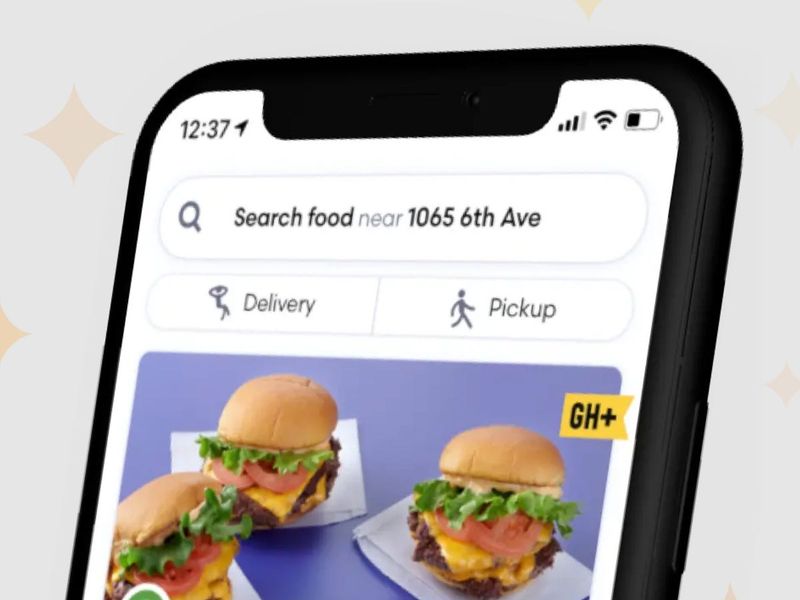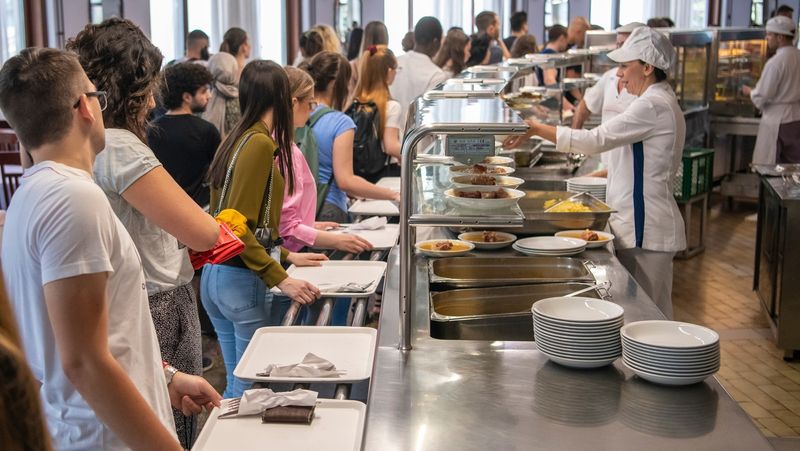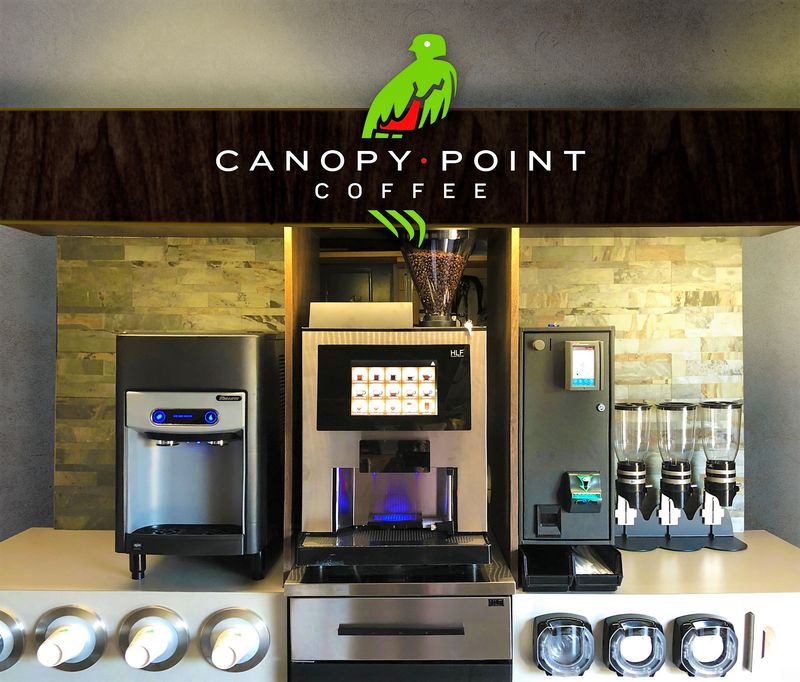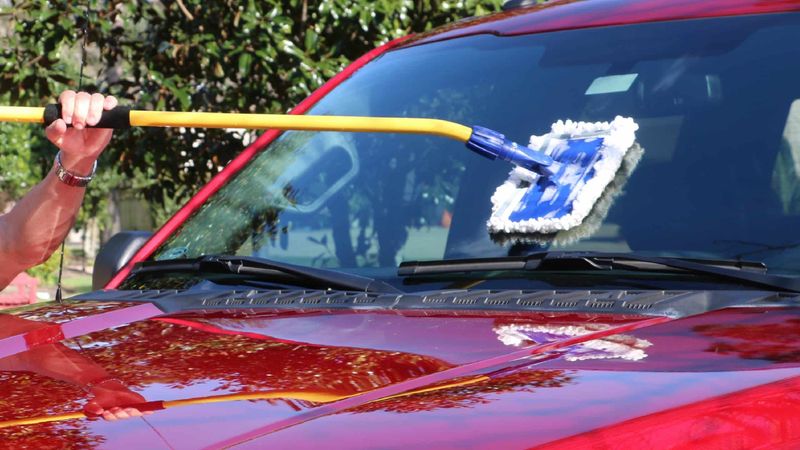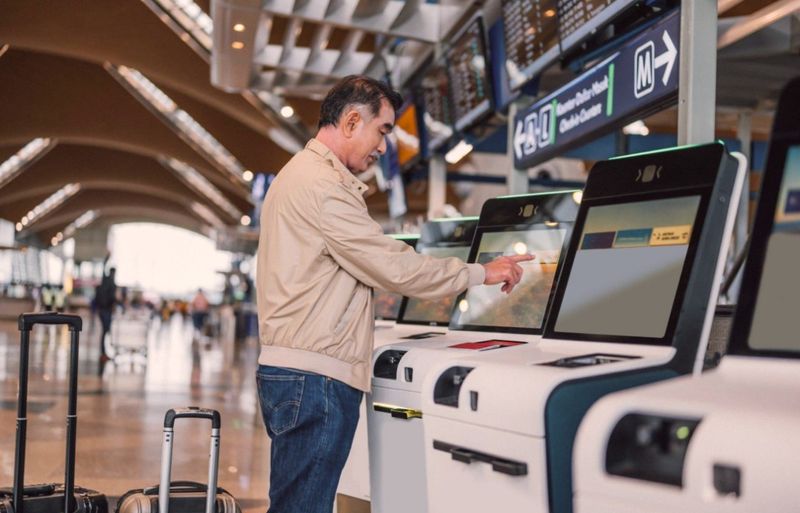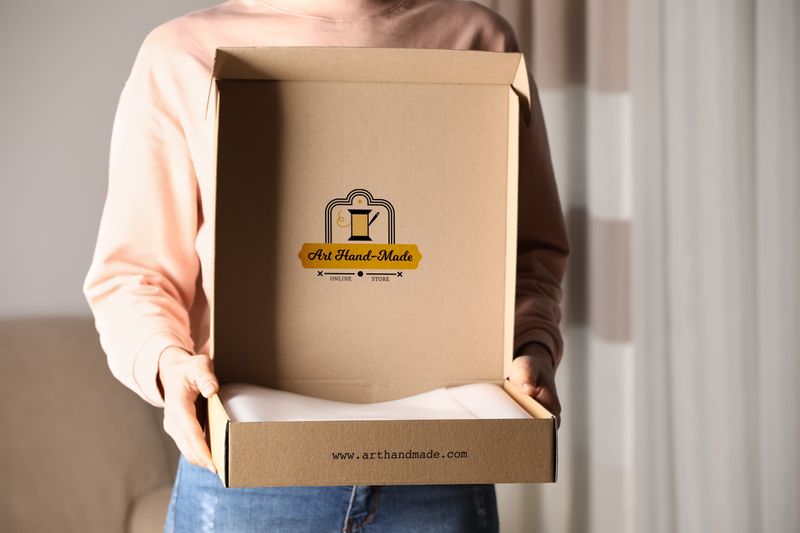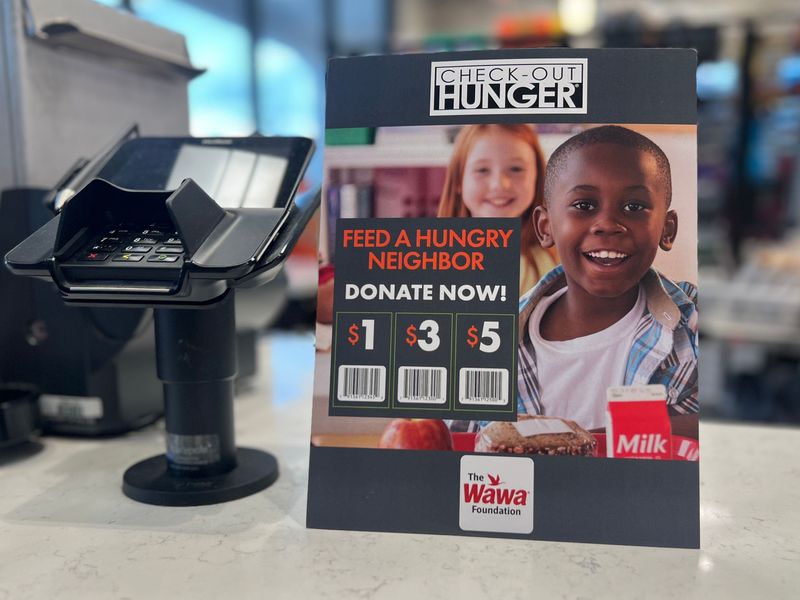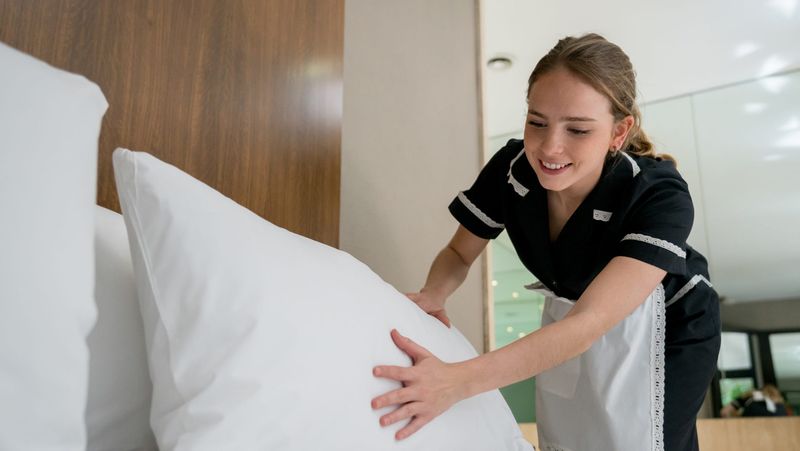Tipping in America has expanded beyond traditional service industries, leading to confusion and frustration among consumers.
While tipping is meant to reward exceptional service, it has infiltrated areas where it’s neither customary nor necessary.
This blog post explores the top 11 ridiculous places where tipping has gotten out of hand, aiming to clarify when gratuity is truly warranted.
1. Self-Checkout Machines
Self-checkout machines are becoming commonplace in grocery stores, offering convenience and speed. However, the idea of tipping a machine might seem absurd to many.
With no human interaction involved, the request for a tip can feel like an underhanded surcharge.
Most people agree that tipping is a way to reward service, not for using a machine designed to reduce overhead costs for the store. When faced with this prompt, it’s perfectly acceptable to decline.
Remember, the machine isn’t providing personalized service, and such requests could set a precedent we might not want to follow.
2. Online Retail Purchases
Shopping online has revolutionized how we buy goods, making transactions faster and often cheaper. But tipping for an online purchase? That’s a stretch. The absence of any direct service interaction makes this request puzzling.
When considering tipping in this context, think about who the tip would go to. If there’s no clear recipient providing an extraordinary service, there’s little reason to add extra to your total.
Keep your budget in mind and remember, tipping online retailers is far from a standard practice.
3. Food Delivery Apps Charging a Tip for Pickup
Food delivery apps are incredibly convenient, providing an array of dining options at your fingertips. But asking for a tip when you’re picking up your own order? That can feel unnecessary.
This situation blurs the lines between appreciating service and simply paying extra. When you’re the one making the trip and collecting the meal, it feels counterintuitive to pay a tip.
If the staff assist you in any special way, a tip might be warranted. Otherwise, think twice about this additional charge.
4. Cafeteria-Style Restaurants
Cafeteria-style dining encourages customers to serve themselves, which makes tipping a gray area. The expectation here is often unclear, leaving patrons wondering whether their tip is necessary.
Typically, cafeteria staff may clean tables or assist with minor requests, but the level of service doesn’t compare to a full-service restaurant.
If you feel compelled to tip, consider the extent of service received. However, don’t feel obligated to tip for simply carrying your tray.
5. Coffee Shops with Self-Serve Stations
Many coffee shops now have self-serve stations, offering quick access to your coffee fix. However, does grabbing your own cup warrant a tip? For many, the answer is no.
When baristas create your drink, a tip can reflect appreciation for their craft. But when you’re doing the work yourself, it’s reasonable to question the need for tipping. Think about whether the service provided justifies an additional charge before adding to the tip jar.
6. DIY Car Washes
At a DIY car wash, you’re in charge of cleaning your own vehicle. Therefore, a request for tipping might seem out of place, as you’re doing all the labor.
These facilities provide the equipment, but the rest is up to you. If there’s no attendant offering assistance or additional service, feel confident skipping the tip. Instead, focus on getting a sparkling clean finish and enjoy the satisfaction of a job well done.
7. Airline Self-Check-In Kiosks
Airline self-check-in kiosks aim to streamline the boarding process, reducing wait times and enhancing convenience. Yet, the notion of tipping a machine during self-check-in can be perplexing.
These kiosks eliminate the need for staff intervention, thereby not offering a service that typically warrants gratuity. If no human has gone above and beyond to assist you, it’s perfectly acceptable to bypass the tip prompt.
Save your tipping for instances where personal service truly makes a difference in your travel experience.
8. Subscription Box Deliveries
Subscription boxes have become a popular way to receive curated products, from snacks to beauty supplies. The delivery is part of the service, but tipping for this automated process may not be necessary.
Consider whether the delivery experience included elements of personal service that went beyond standard expectations.
In most cases, these boxes arrive without such interaction. Evaluate each situation, but don’t feel pressured to tip routinely for a scheduled delivery.
9. Restaurant Service Fees Posing as Tips
Some restaurants now include service fees that appear like tips, causing confusion. These are often pre-set percentages added to the bill, without the customer’s discretion.
Understanding the difference between a service fee and a tip is crucial. While the fee may go towards the staff, it doesn’t replace traditional tipping. If service was exemplary, consider additional gratuity.
However, don’t feel obligated to double-tip if the service fee was intended to cover the worker’s efforts.
10. Charity Donation Requests at Checkout
At checkout, many stores now prompt for charity donations, which can feel like a form of tipping. While charitable giving is admirable, these requests can feel out of place when you’re simply shopping.
Deciding to donate should be personal, without pressure at the register. If you want to contribute, do so because you genuinely wish to support the cause, not as an obligatory addition to your purchase.
Tipping should remain separate from charitable giving, maintaining clarity between the two.
11. Hotel Maids for Short Stays
Hotel maids work hard to keep rooms clean, and tipping them is often encouraged. However, for short stays, especially one night, the service provided might not justify a tip.
If your room was cleaned or prepared in a highly personalized way, consider tipping. Otherwise, short stays generally don’t demand the same level of service as longer visits.
Assess the situation based on the actual service received, rather than feeling obligated due to typical tipping norms.
